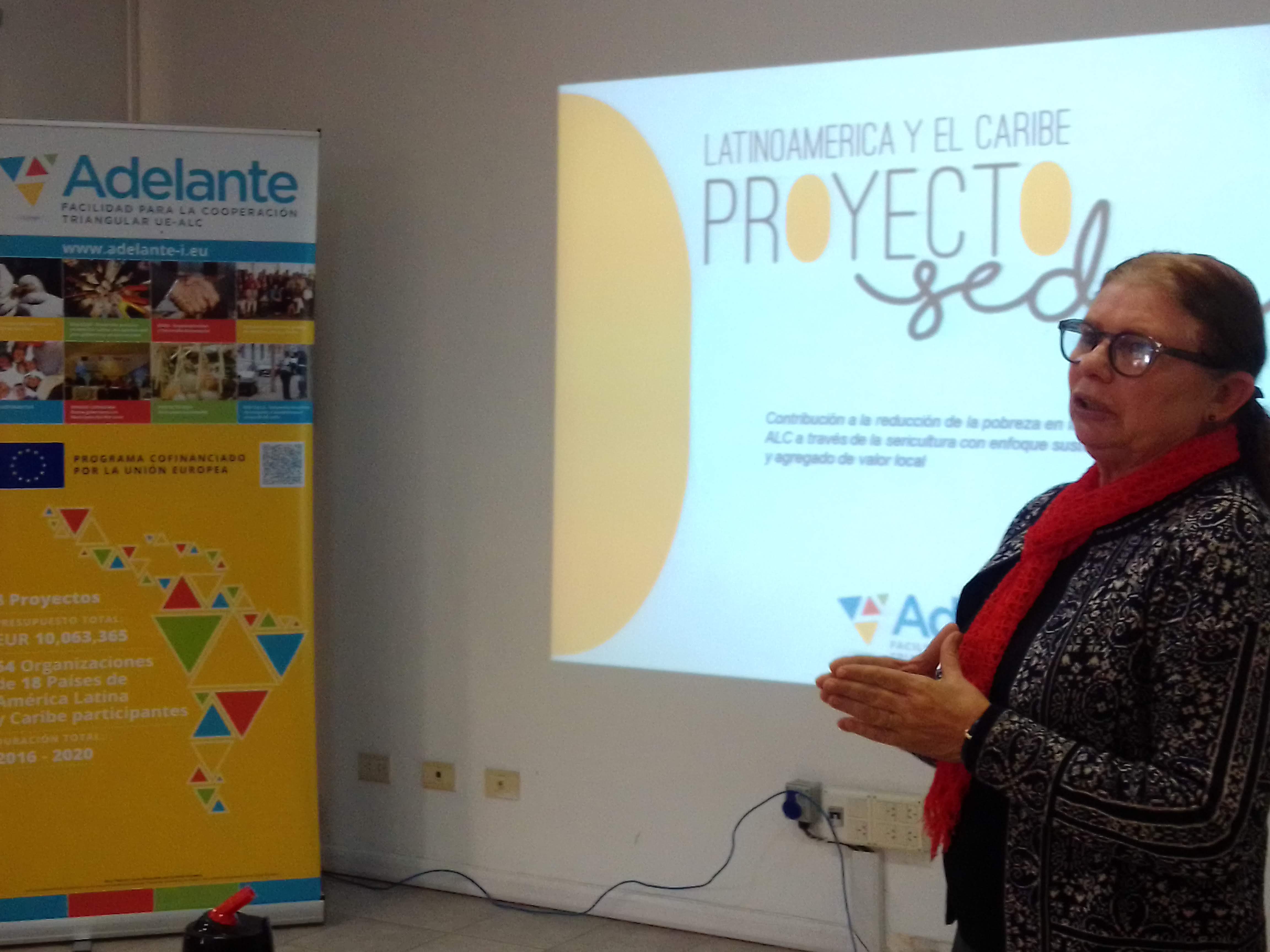Global Trends in Sericulture Day 2019

Technical experts of the Seda Project from Argentina, Brazil, Colombia, Cuba and Ecuador, met on 4 September, at the INTI-Textiles Center, to share knowledge and views on current trends in the production and commercialization of silk and textiles.
The opening of the Global Trends in Sericulture Event was preceded by Lic. María Eugenia Suárez, Deputy Manager of Institutional Relations of INTI, and led by Eng. Patricia Marino as Technical Coordinator, who spoke about the innovations presented at the ITMA Textile Fair (Barcelona 2019). Among the axes for textile development highlighted by Mrs Marino were industry 4.0, transparency and traceability, sustainability, protectionism and logistics. The participants could learn about the main digital solutions in force within the processes of the textile chain, the extension of frontiers in the use of textile materials, and the development of customer-focused speed factories, with increased interaction to strengthen the concept of "zero stock" based on customisation from artificial intelligence.
One of the topics of greatest interest was Circular Economy as the only possible model for the fashion sector, whose environmental pollution rates are very high. The domestic washing of polyester clothes is removing microfibers which globally represent half a million tons per year and pollute the oceans. To learn more about Circular Economy, listen to the lecture given by Marina Chahboune, Expert in sustainability in the fashion industry, at the INTI Auditorium on 6 September 2019.
Next item on the Agenda was Engineer Francisco Pescio from Argentina's National Institute of Agricultural Technology (INTA) talking about the training in sericulture and the silk industry he attended at the Central Sericultural Research and Training Institute (CSRTI) in Mysore, India. Pescio gave an overview of the main silk producers worldwide and the particularities of production, applied technology and marketing in India; he also highlighted the importance, at a country level, of generating employment to 1.2 million silk farmers.
MSc holder Marlene Prieto Abreu from the Indio Hatuey Experimental Station of Pastures and Forages (EEPFIH) in Cuba shared with the audience the main trends presented at the 6th International Congress on Sericulture and Biotechnology, APSERI 2019, India. Abreu recalled the global picture of the main silk markets given by Pescio in order to put the emphasis on those countries where the activity decreased due to competition with other industries, such as Japan and South Korea.
At APSERI, the Cuban institution presented two research papers on possible implementations of sericine in agriculture based on different methods of protein extraction for the management of bacteria, microbiotic infections and even animal and plant nutrition.
Zootechnician Alessandra Silva from the State University of Maringá, Brazil, spoke about her participation in the Frontiers in Silk Science and Technologies Congress, organized by the University of Trento in June 2019 and the technical training in reproduction and production of silkworms at the CREA Bacological Institute of Padua. Silva went over the tasks of silkworm cocoon selection and preparation for reproduction, preparations for pebrine inspection, as well as egg estivation and hibernation.
Engineer Samanta Dobler, from the Faculty of Agronomy of Buenos Aires, participated, together with Silva, in the Congress in Trento and highlighted some of the research papers presented in the field of bioengineering, biomedicine and the regenerative nano-bio application of sericine through 3D printers working with silk fibroin. Of particular note were Dr. Giovanna Salice's presentations (from Sociolario - Italy) at the Congress on Latin experiences of silk production and the research work on the use of waste from silk processing in biomaterials by Engineer Adriana Restrepo Osorio, from the Pontifical Bolivarian University of Colombia, partner entities of the Seda Project.
Dobler also participated in an update session on sericulture for technical agents and extensionists in Londrina, Brazil, organized by the Agronomic Institute of Paraná (IAPAR), the Paraná Institute of Technical Assistance and Rural Extension (EMATER) and BRATAC, a private company producing silk yarn; This training focused on the main lines of silk production (blackberries, worms and cocoons) focused on the objectives of improving production, accompanying research work and supporting the organization of REDES, productive units that are a reference in technical, environmental and economic aspects for family agriculture in Brazil, which is currently the 4th largest producer of silk cocoons and high quality yarn in the world.
Off the agenda, Cuban designer Maite Dumenigo had the opportunity to present, during the day, her experiences of silk production on the island, especially the work carried out in conjunction with the EEPFIH, and the look towards a ecosystem-friendly way of working. Then, Zunini told the audience about the upcoming launch of an aid to producers, designers, entrepreneurs and project managers working with silk in Latin American and Caribbean countries that are part of the Seda Project (i.e. Argentina, Brazil, Colombia, Cuba, Ecuador and Mexico).







